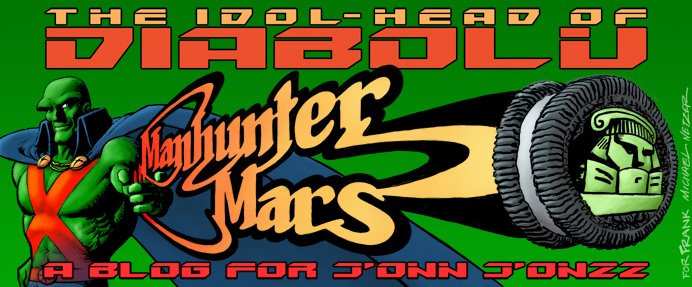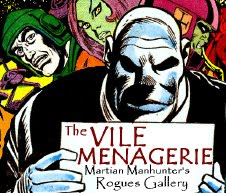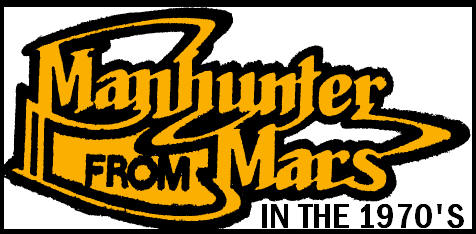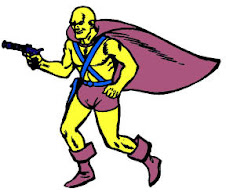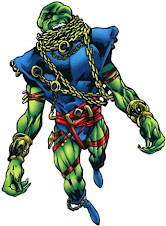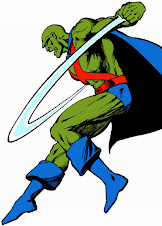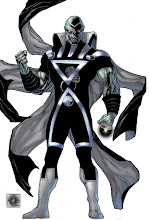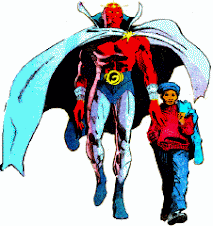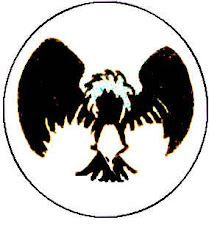Monday, June 28, 2021
JLA: Year One #9 (September, 1998)
Snapper Carr called the Flash back to base after days of it's being empty. "...morale's a little low. I can't believe J'Onn betrayed us like he did... Canary's cynical as it is, and Aquaman... I keep expecting him to swim off in disgust. He's just waiting for the rest of us to turn on him now." Snapper jabbed that he hoped they could set aside their paranoia long enough to save the world from three simultaneous globe-threatening climate disturbances, and everyone appeared to respond to the distress signal except J'Onn. Possibly not having seen each other since the confrontation, Flash asked about Green Lantern's pursuit of J'Onn. "I've searched high and low. Nothing." In truth, the Manhunter was present, invisibly undetected, and left for a third location after the rest paired up for separate priority targets.
The Flash was uncomfortable with his physical proximity to Black Canary while running to the Arctic, and she was put all the way off when he let slip that he had less a girlfriend and more a fiancé. Both had trouble sleeping at night knowing J'Onn was out there with all their secrets, presumably telling them to Locus. The pair still succeeded in bypassing a flaming giant Locus proxy body agent to destroy the machine that was melting the polar icecaps.
At the Mariana Trench, Aquman asked why Green Lantern was always giving orders, then belly-laughed at his answer. "You're not the leader. Flash is the leader! ... J'Onn, Canary, and I talked about this weeks ago. It's obvious to us!" The revelation poked leaks in Lantern's energy construct bubble, which would be much needed against a giant Locus agent sea monster. The heroes tricked it into destroying the second atmosphere-altering machine.
Locus agents collapsed Vandal Savage's base on top of him, but he survived by hiding in a sarcophagus, plotting revenge.
The eighth Appellaxian had failed to launch, but was found and freed by Locus, who eventually inserted it into the human body of Simon Carr. After four months of nightmares and a loss of control, Simon finally confided in Snapper, who tried to alert the Justice League. Instead, he had his face smashed through a computer monitor by Uncle Simon.
The machine in California's Redwood Forest was the lowest priority, so the pairs of heroes reconvened there, only to find J'Onn J'Onzz working the device. Green Lantern thought that cleared up any lingering doubts, assuming the Alien Atlas was guarding it, missing entirely the downed Locus proxy body off to the side. The Flash councilled against acting too rashly. "J'Onn's always been full of secrets. Suppose he neglected to tell us about his 'deathvision' or something. We only know one way to take him down for certain... and that's to take advantage of his one weakness." While Flash ran a ring of fire on the ground around J'Onn, Green Lantern punched him with a giant energy fist. J'Onn pleaded with them to extinguish the fire, but Aquaman popped him one while declaring "Not a chance, traitor!" Then the enormous explosion happened. "I tried... to tell you... to keep the fire away. The machine... I was attempting to shut it down safely. It was pumping... methane-based gases into the atmosphere! Not only are they deadly to human life... they're flammable!" Never mind that they knew about J'Onn's weakness because he told them, but hey, only you can start forest fires!
"Change the World" was by storytellers Mark Waid / Brian Augustyn / Barry Kitson with inker Michael Bair. In 1997, Grant Morrison gave an interview to Wizard Magazine for a special edition devoted to JLA, featuring sections with his thoughts on each member. "When I talk with other writers about JLA, a lot of them tell me they don't like the Martian Manhunter, and think that if there was going to be a story where someone betrays the JLA, then he's the guy who would do it. I see him much differently. If someone was to betray the JLA, he's the last person who would do it." Wizard stated his rationale was that Manhunter was the most stalwart member, in good times and bad, specifically referencing the Post-Crisis contrivance that he'd been a member of every incarnation. Obviously that wasn't true of the actual publishing history, and cue a slew of writers having Manhunter either betray or quit the team in some fashion. Ultimately though, Morrison was right, because fans roundly rejected or ignored these hot takes and pestered DC to get J'Onn back on the team. Anyway, I feel like Waid also agreed with Morrison, and did his best to explore that angle in a "safe" environment to abort any of those other nefarious writers' plans. The Manhunter isn't entirely in the right during this maxi-series, but the League is very in the wrong with regard to their treatment of our boy.
1990s, Aquaman, Black Canary, Flash, Green Lantern, Justice League of America, Martian Manhunter, Retcons, Vandal Savage
Thursday, June 24, 2021
JLA: Year One #8 (August, 1998)
Locus' plans were near fruition, thanks to the purple gengineered host bodies derived from Appellaxian DNA. Robert Anderson's last day as a fully human member was defined by distraction and detachment, even from Locus itself. After years of knowing Mr. Genuardi at the neighborhood store, Anderson refused to remember his name, even as he inquired as to the health of Anderson's brother. A dinner invite from a sunny married couple in his building was refused. Robert took his girlfriend Linda out to dinner for a one-sided tearful break-up, as he emotionlessly asserted "I just don't see a future for us" while imagining the smoldering corpses of everyone in the restaurant. At Rolling Hills Mental Hospital, "Bobby" saw his intellectually disabled brother "Stevie" for the last time, as he again blames himself for the Frankenstein-style accidental drowning of their sister, Janie.
Back at the sanctuary, Green Lantern angrily threw Superman's chair into space, ignored Black Canary's personal inquiries, and became a unappeasable martinet with his teammates and associates. While most of the League focused on Superman's lame "My time is not my own" excuse, Aquaman rightly noted that the more interesting comment was the Man of Steel's having fought another Appellaxian during their invasion. If the League missed that one, who's to say if there weren't others? Snapper Carr hacked into a bunch of government databases on satellites, and sure enough, he counted eight meteors on the day the League was born.
After a snarky comment while searching Star City Harbor for signs of the meteor, Green Lantern was called out for being a jerk by Green Arrow, as well as by Aquaman. Flash explained the Superman scenario, and apologized for rubbing any salt in the wound of Arrow not having been asked to join. The Emerald Archer displayed maturity over Lantern, chiding "What a baby. He's got to learn to take the blows..." Meanwhile, a Martian alternative to capacitors was offered to Snapper Carr for the headquarters, and he made the cringe joke "Mighty human of you" before immediately expressing regret to the Green Dude. "Think nothing of it, Snapper. It is a compliment... in a way. Over these past few weeks, I have learned a great deal about being... human." After, Uncle Simon was sweaty and acting weird, asking Snapper to keep an eye on J'Onn J'Onzz specifically, to see that he didn't do any unwanted snooping. Elsewhere, the brief turn of the Blackhawks acting as costumed super-heroes ended with them shedding their ridiculous short-lived affectation. Also, Barry Allen and Iris West were having relationship troubles over his growing affection for Black Canary and secret double life.
While crawling through ducts to set up more requested surveillance cameras, Snapper accidentally looked in on J'Onn's private quarters. Alarmed by what he saw, Snapper began filming. He immediately showed the footage to the human members of the League, declaring J'Onn a spy. The Manhunter was recorded shapeshifting between various identities, including Mike the cop, Detective Paris Jackson, F.A.A. investigator Lora Denton, and Coast Guard Officer Perez. The League smashed through the wall of J'Onn's private quarters demanding answers, only to discover detailed files on Earth's metahumans like the Atom, the Metal Men, Metamorpho, and the Spectre. Black Canary finally realized that J'Onn had once called her by her real name in battle, only heightening her feelings of violation. Aquaman felt that it was an obvious mistake to have taken Manhunter at his word, and wondered if the deception was so deep as to cover for his being the missing Appellaxian. J'Onn asked for trust, but in a new reason for calling him Snapper, "NO! Why should we? Why should we believe anything you say?" Manhunter started to fly off, but was caged by an energy construct, Lantern declaring "Forget it, alien! You're not going anywhere!" A little weird that the Alien Atlas used invisibility and presumably malleability but not intangibility, blasting through the roof to escape the base. Lantern gave chase, while J'Onn's only (barely) defender The Flash smashed his globe of Mars. Rude.
Mr. Anderson was not another identity of J'Onn J'Onzz, in case you were wondering. He finally committed to reengaging with his life, and tried to warn the Justice League about the Locus plot. While attempting to make his way into their base, he was discovered and shot dead by Simon Carr, who branded him a traitor to Locus.
"Loose Ends" was by storytellers Mark Waid / Brian Augustyn / Barry Kitson with inker Michael Bair. More than half the series has been noodling and character work, so this issue was almost jarring in its use of a one-off POV side character and throttling acceleration of the plot. Not so much a slow burn ratcheting tension and more the sudden panic of realizing the big test is coming up and you need to start cramming. Everything was in place already, but the contrivance of it all hitting at once with peak histrionics was an artificial turn following seven relatively languid issues. The writers did such a great job of indicating Hal Jordan's toxicity in a story clearly informed by his fall from grace a few years earlier that I still can't accept his redemption arc under Geoff Johns. It was just too clearly another example of white guys always getting another chance, even with the blood of an entire corps and parallel universes on his hands. Your mileage may vary on J'Onn J'Onzz being the first non-white member of the League, but the othering portrayal here leans hard into that aspect. Jordan especially said "alien" with a hard "r," and while J'Onn's trespasses were grievous, the reaction went full Karen.
1990s, Aquaman, Black Canary, Flash, Green Lantern, Justice League of America, Martian Manhunter, Retcons, Superman,
Friday, June 18, 2021
JLA: Year One #7 (July, 1998)
The Gotham City Executive Club could barely tolerate the rest of the Justice League's attire, but J'Onn J'Onzz's mankini was entirely unacceptable. Shapeshifting into what probably seemed like Tony Stark in a tuxedo, but what true fans would catch as a callback to Marco Xavier, the Martian was finally allowed passage. Once inside, Green Lantern led the team in an inquisition of Simon Carr, as it was suddenly untenable to have a mysterious benefactor giving them likely billions of dollars in support with no questions asked. "For all we know, Vandal Savage could be holding the purse strings!" Weirdly gendered phrasing from Black Canary. During this rather unnecessary public spectacle, Maxwell Lord tried to bet Bruce Wayne over who could "nail" Canary first (not-so-oddly gendered phrasing,) but Wayne was all *who are you* and *this is boring* about it. Both Wayne and Lord had no patience for the more prejudiced club members treating the League as riffraff, with Lord expressing a keen interest in turning them into his personal army. Foreshadowing, both intended and unforeseen. Speaking of, the Marco Xavier form was abandoned by page 3 for effect when The Sleuth from Outer Space affirmed that Carr was telling the truth because "I read his mind." I believe J'Onn rightly asserted on the "ride home" that he'd previously disclosed this ability, but the team had a delayed freakout over the implications. "I'm sure J'Onn wouldn't invade our private thoughts... right, J'Onn?"
In her personal time, Dinah Lance hashed out her beef with mom over coffee with friendly Officer Mike. Cut to the various new supporting cast members who've inserted themselves into the League's civilian lives to gather data and build intelligence files. The dossiers were hidden behind a holographic wall, and there was some questioning the ethics of manipulating the team members, assuaged by having "much at stake". Locus saw value in such files digging up "dirt," though their leader was content to simply allow the League to be distracted by other threats as they continued their own agenda unmolested. Genegrafting their minds into superior new bodies would assure their survival in the coming holocaust. Boy, this issue is full of problematic phrasing, as even by the '90s the term "holocaust" was firmly associated specifically with the Nazi campaign of genocide, though as with "ghetto," later association doesn't negate a word's independent origins.
There's a two page spread of the Justice League's unrecorded missions, battling the Invisible Destroyer, Icicle, Gorilla Grodd, and the "phantom doom." Typically, this would be where you'd reference actual stories from the League canon to establish a time frame, but the creators chose to frustrate future wiki contributors with ahistorical matches involving villains individual Leaguers had already beaten on their own. Clark Kent was doing a story on the team for the Daily Planet, and caught sight of them battling one another while mislead by an illusion cast by Xotar the Weapons Master, one of their earliest foes. Superman's heat vision slagged whatever literally futuristic device Xotar was employing, and clear-eyed, the League turned their attention toward their true enemy. Green Lantern embarrassed the team with a ham-fisted error, but clean-up was a snap with the Man of Steel pitching in. Superman smashed a "time-porter," and Xotar was seemingly flung back to his starting point 10,000 years in the future. Still, Lantern was staring daggers at being upstaged, while the rest of the starstruck team gave Superman a tour of their headquarters (with a security system incorporating Martian technology.) At the urging of Aquaman and Canary, the Flash finally offered Superman League membership (seconded by Arthur.) In an abrupt chapter close, Superman turned them down, retroactively stripping Metamorpho and Black Lightning of their privileged status as first refusals.
"The American Way" was by storytellers Mark Waid / Brian Augustyn / Barry Kitson with inker Michael Bair. I enjoy the crisp, dark line that Bair provides, adding just the right touch of edge and mood while still maintaining Kitson's overall genteel Silver Age quality. Sekowsky drew the original stories, but he was an atypical DC artist, with his awkward, rough-hewn figures and stylized, angular backgrounds. This series feels like the Justice League being reclaimed as part of what Jacobs & Jones called DC's 1950s "Frigidaire" house style of clean, clear, antiseptic, conformist commercial art. That may seem like a knock, but after the grotesque excesses and perilous upheaval of the Chromium Age, this was a comfort to aging '90s audiences. The industry had reached its ultimate peak, fractured violently, and plunged to lows that seemed liable to terminally pulp the art form. A pleasant nostalgia piece was entirely called for in 1998, with just enough Image sheen to satisfy the fanboys.
1990s, Aquaman, Black Canary, Flash, Green Lantern, Justice League of America, Justice Society of America, Martian Manhunter, Retcons, Superman, Vandal Savage
Monday, June 7, 2021
JLA: Year One #6 (June, 1998)
At Doom Patrol Headquarters, The Chief used technology mostly cribbed from Robotman's spare parts to offer the Justice League temporary prostheses to compensate for their missing parts. Fitting for the era and for why such devices aren't the focus of Niles Caulder's life's work, the devices are very bulky, cumbersome, inaccurate, and overpowered for use by the general public. With the exception of J'Onn J'Onzz and the fully able-bodied Aquaman, the dismembered Leaguers were also hobbled by doubt, anxiety, and self-pity. In the case of the Manhunter, he had a large dome visor covering most of his head that aloud him to see with poor depth perception and delays as through a fog. Caulder had done his best to navigate the maze of a Martian nervous system, and wondered how many senses his subject possessed. "With my eyes missing? Eight."
The Leaguers weren't sure if they could function well enough to continue, but Manhunter insisted "We... We have responsibilities, nonetheless. Thanks to the Brotherhood, the people of Manchester are equally... disadvantaged. We must reclaim the Genegraft device that caused all of this... and reverse it." Back in Alabama, the Brain had used his power ring to build his own energy construct castle, and refused to surrender any of his ill-gotten gains to the Locus attack force buzzing outside. The Brain wasn't using his, simply employing the League's eyes, voice box, and legs for natural purposes. He focused solely on the ring, unaware of its vulnerability to the color yellow and limited charge. Robotman and Aquaman not only made a fine pair... but they also exploited those weaknesses.
Black Canary, Martian Manhunter, and Elasti-Girl were the second group. Rita Farr tried to offer solace over her partners feeling like freaks, but J'Onn J'Onzz did her one better. "Which is what puzzles me most about Earthlings-- How they can perceive such differences between themselves. Even with my eyes, I could see that people were distinct... but not truly different. Not enough to drive such wedges between them. Some days, I fear that I will never understand the artificial divisions you create among yourselves. Other days... I fear I shall... I've been meaning to tell you, Ms. Farr, how disappointed I am you're no longer making films... When I first came to Earth, television was my window to language... to culture. I saw many of your 'chiller' pictures, and... well... I suppose I became a fan." Elasti-Girl gave him a kiss on the cheek, then saved the Leaguers from Monsieur Mallah when they proved useless against him.
Green Lantern, Flash, and Negative Man were clearly the most effective fighting unit, though what exactly caused the castle to collapse was never made clear. Regardless, The Brain still massacred the Locus forces and imprisoned most of both super-teams with his power ring. Canary tried to administer first aid to one trooper, who spoke of a coming holocaust. Flash and Aquaman teamed up to bring an end to the matter at hand, as the Sea King used his superior will power to command a ring construct cutlass to decapitate The Brain. Hal Jordan confided to Larry Trainer, who had recognized his fellow pilot, that he was shaken to see the ring used for a potentially lethal action (aft-shadowing "Emerald Twilight.") Every body was restored, and the two teams gently ribbed each other about dibs on hero of the day Aquaman. Rita assured J'Onn that Sigourney Weaver would have approved of him, and explained to her cohorts that the heroism they'd learned from being ostracized from society simply came naturally to the League.
"Sum of Their Parts" was by storytellers Mark Waid / Brian Augustyn / Barry Kitson with Michael Bair & John Stokes. Haven't read this issue in a couple of decades, so it's fun to rediscover the Doom Patrol from a place of greater knowledge. Madame Rouge makes a good case for how stretching powers work better for villains willing to fully exploit them for creep value. Cliff Steele really is just Ben Grimm at this point. It's fun seeing the JLA riff of character logos being statted into the openings of spotlight scenes, but with the twist of lesser-knowns like Black Canary and Negative Man. I'm guessing they're still using Xerox instead of Photoshop though, because they are tiny with a curious disparity in sizes. It would have been nice to have gotten an older vintage Manhunter logo than 1987, but it's still his best one, and DC's later offerings since have been so hideous that it's more than welcome to see. Also, I just realized from this issue that one of the most endearing aspects of J'onn is that he's the Linus van Pelt of the League. He's the one who'll grind the story to a halt to explain the subtext in a heartfelt but objective way. It's a comic book, so that's exactly what super-heroes should do, and anyway, Linus is the best character in Peanuts. Not sure if that makes H'ronmeer Baby Jesus or The Great Pumpkin, but there it is.
1990s, Aquaman, Black Canary, Doom Patrol, Flash, Green Lantern, Justice League of America, Justice Society of America, Martian Manhunter, Retcons,
Subscribe to:
Posts (Atom)
